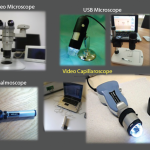Monoclonal gammopathies of undetermined significance (MGUS) can support the diagnosis of SCLS, but are not uniformly present.9 Notably, an estimated 79–82% of patients with SCLS have MGUS.3 A monoclonal IgG kappa in a serum sample from this patient was detected on Sept. 11, 2014, together with an elevated kappa/lambda serum-free light chain ratio and beta-2 micro globulin, which support the diagnosis of MGUS. A bone marrow biopsy could be considered for confirmation purposes.
For prophylaxis of recurrent SCLS attacks, many patients, including ours, have received IVIG to successfully remain in remission. Gouseff and Amoura reported anecdotal success with monthly IVIG infusions as prophylactic therapy in three patients.10 Additionally, an NIH study reported that monthly prophylaxis with high-dose intravenous immunoglobulin was associated with a sharp reduction in the number of acute systemic capillary leak syndrome attacks with few side effects in 18 patients. This is an improvement from previously tried theophylline-based therapy, which was frequently associated with breakthrough symptoms and substantial side effects.11 A Swiss Internal Medicine department also reported a case of a 40-year-old woman with chronic SCLS successfully treated with high-dose intravenous immunoglobulins, after a prophylactic therapy with theophylline and terbutaline was poorly tolerated and failed to decrease the frequency and severity of the attacks sufficiently.12
The mechanism of action of IVIG in SCLS is poorly understood.11 Several reports demonstrate evidence of an immune-mediated pathogenesis of SCLS, with increased levels of cytokines, including IL-6, IL-10, interferon-γ and tumor necrosis factor-α.13 IVIG possess anticytokine properties and inhibit the synthesis of different ILs, including IL-2, and may operate in SCLS through modulation of the immune response.14
Lastly, no previous literature describes a case of SCLS in a patient with prior RA. Reports on adult SCLS are few, and accumulation of similar case reports is needed. Particularly, more cases are needed in regard to the relationship of systemic capillary leak syndrome and rheumatoid arthritis and other rheumatic diseases.
 Alexis Smith, MD, is a graduate of Georgetown School of Medicine, Washington, D.C., and a resident in family medicine at Harbor-UCLA Medical Center, Los Angeles, Calif.
Alexis Smith, MD, is a graduate of Georgetown School of Medicine, Washington, D.C., and a resident in family medicine at Harbor-UCLA Medical Center, Los Angeles, Calif.
 Angus Worthing, MD, FACP, FACR, is a practicing rheumatologist in the Washington, D.C., metro area and clinical assistant professor of medicine at Georgetown University.
Angus Worthing, MD, FACP, FACR, is a practicing rheumatologist in the Washington, D.C., metro area and clinical assistant professor of medicine at Georgetown University.
References
- Clarkson B, Thompson D, Horwith M, et al. Cyclical edema and shock due to increased capillary permeability. Am J Med. 1960 Aug;29:193–216.
- Milner CS, Wagstaff MJ, Rose GK. Compartment syndrome of multiple limbs: An unusual presentation. J Plast Reconstr Aesthet Surg. 2006;59(11):1251–1252.
- Druey K. Greipp PR. Narrative review: The systemic capillary leak syndrome. Ann Intern Med. 2010 Jul 20;153(2):90–98.
- Tahirkheli NK, Greipp PR. Treatment of the systemic capillary leak syndrome with terbutaline and theophylline. A case series. Ann Intern Med. 1999 Jun 1;130:905–909.
- Iwasa T, Ohashi H, Kihira K, et al. 10-year-old girl with life-threatening idiopathic systemic capillary leak syndrome: A case report. BMC Pediatr. 2014 May 31;14:137.
- Tahirkheli NK, Greipp PR. Treatment of the systemic capillary leak syndrome with terbutaline and theophylline. A case series. Ann Intern Med. 1999 Jun 1;130(11):905–909.
- Dhir V, Arya V, Malav IC, et al. Idiopathic systemic capillary leak syndrome (SCLS): Case report and systematic review of cases reported in the last 16 years. Intern Med. 2007;46(12):899–904.
- Xie Z, Ghosh CC, Patel R, et al. Vascular endothelial hyperpermeability induces the clinical symptoms of Clarkson disease (the systemic capillary leak syndrome). Blood. 2012 May 3;119(18):4321–4332.
- Kawabe S, Saeki T, Yamasaki H, et al. Systemic capillary leak syndrome. Intern Med. 2002 Mar;41(3):211–215.
- Gouseff M, Amoura Z. Idiopathic capillary leak syndrome. Rev Med Interne. 2009 Sep;30(9):754–768.
- Xie Z, Chan EC, Long LM, et al. High-dose intravenous immunoglobulin therapy for systemic capillary leak syndrome (Clarkson disease). Am J Med. 2015 Jan;128(1):91–95.
- Zipponi M, Eugster R, Birrenbach T: High-dose intravenous immunoglobulins: A promising therapeutic approach for idiopathic systemic capillary leak syndrome. BMJ Case Rep. 2011 May 3;2011. pii: bcr1220103599.
- Dowden AM, Rullo OJ, Aziz N, et al. Idiopathic systemic capillary leak syndrome: Novel therapy for acute attacks. J Allergy Clin Immunol. 2009 Nov;124(5):1111–1113.
- Andersson UG, Björk L, Skansén-Saphir U, et al. Down-regulation of cytokine production and interleukin-2 receptor expression by pooled human IgG. Immunology. 1993 Jun;79(2):211–216.

